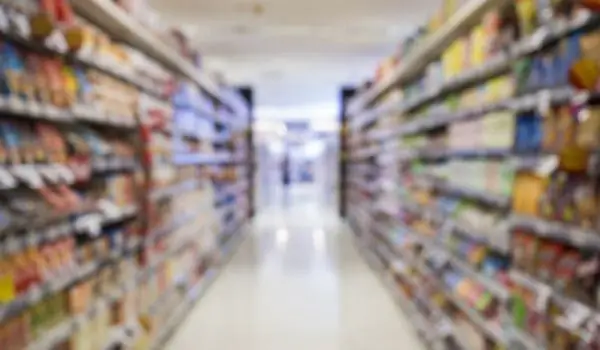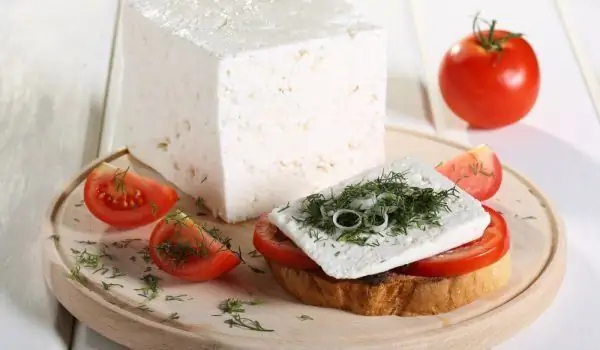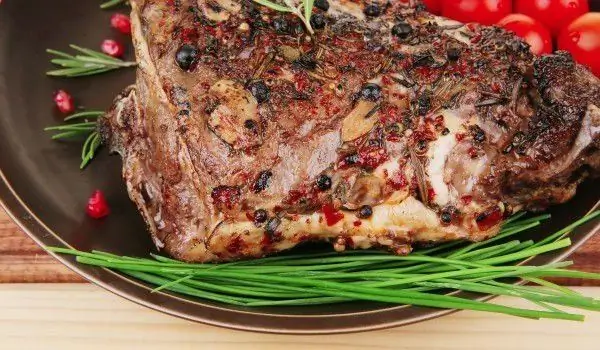2025 Author: Jasmine Walkman | [email protected]. Last modified: 2025-01-23 10:18
A group of researchers from the University of Kansas, led by a leading food expert, Professor of Biochemistry Jay Scott Smith, has been studying the substances derived from heat treatment of meat for several years. Professor Smith is involved in developing methods to reduce the level of carcinogens resulting from cooking, frying, grilling or barbecuing.
The most dangerous compounds are considered to be heterocyclic amines. They are significantly associated with the risk of developing various types of cancer - cancer of the stomach, prostate, lung, breast and pancreas, colon and rectum. Kansas biochemists have found that the use of traditional plant spices, which are natural antioxidants, can reduce heterocyclic amines.
Adding a small amount of dried ginger or cumin to sliced meat leads to the fact that carcinogens are reduced by up to 40% less. Rosemary extract, an herb that invariably accompanies roast lamb in classic European cuisine, reduces the amount of heterocyclic amines in the final product by almost 70%.
Spices that are typical of the culinary traditions of Southeast Asian countries (coriander, ginger, lemongrass, cumin, sesame, etc.) suppress the formation of carcinogens in grilled meat by 30-35%. The effect is achieved even at very high temperatures.
The same group of experts from the Institute of Food at the University of Kansas found that concentrations of heterocyclic amines increase in the case of rapid heating of the temperature of meat above 178 ° C.

Steaks, skewers, grilled steaks and classic barbecue, as well as red meat, are usually cooked at temperatures about twice or even three times higher than this figure, which means that the levels of these carcinogens in the most popular summer dishes can go beyond scale.
The most harmless temperatures are considered to be 150-170 ° C. Then the meat can be cooked in the oven and then the cooking speed will increase several times.
Recommended:
The Bulgarian Gives Less And Less Money For Food

The expenditures for food of households in our country are less than those for non-food goods. This shows the analysis of specialists for the past 2015. According to the January data of the National Statistical Institute for Inflation in Bulgaria, no annual change in prices in Bulgaria has been reported.
We Eat Less And Less Native Cheese And More And More Gouda And Cheddar

The sale of white brined cheese in Bulgaria is much lower compared to the consumption in 2006, shows an analysis of the Institute of Agrarian Economics, quoted by the newspaper Trud. Consumption of yellow cheese in our country has also fallen.
Fish Is Less And Less Present On The Bulgarian Table

In the last few years, Bulgarians have been consuming fish less and less, according to a study by the Executive Agency for Fisheries and Aquaculture in the country. From the beginning of the current 2015 to the end of November, the consumption of trout in our country has dropped by 3,304,000 kilograms compared to the same period in 2014.
Bulgarians Drink Less And Less Beer

Beer sales continue to fall, and Bulgarians drink less and less amber liquid, said a representative of one of the largest beer companies in Bulgaria, Nikolay Mladenov. Standard Mladenov told the newspaper that beer sales in the country had fallen by 10% in the summer season alone.
How To Produce Less Harmful Garbage

Today, man has become a big consumer like he was not years ago. This feeds the driving force of producers, who, along with productivity, also increase waste. Remember that the more you use, the more garbage you have. People often buy things they don't need, and in most cases they don't use them, so they throw them away.

